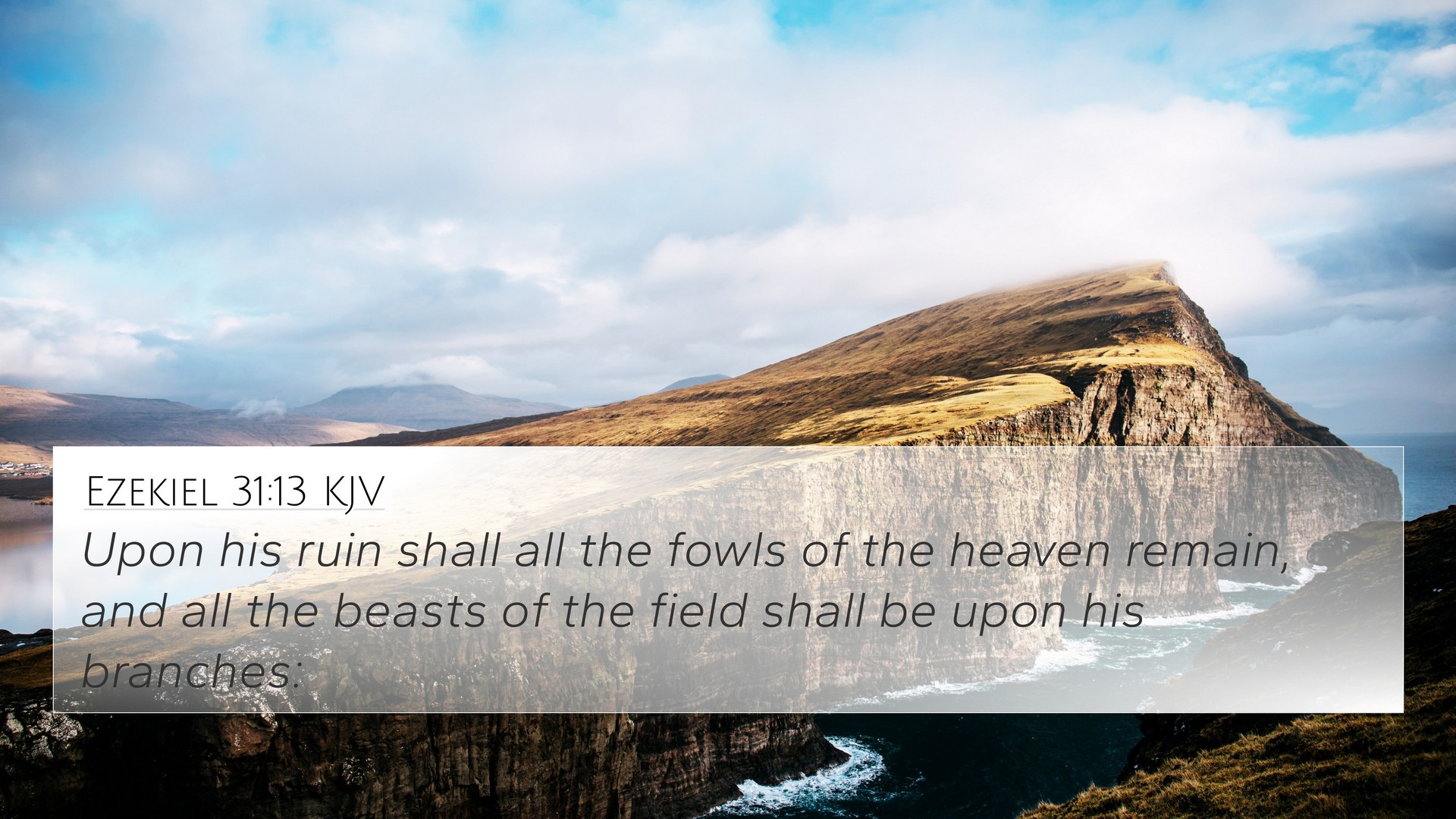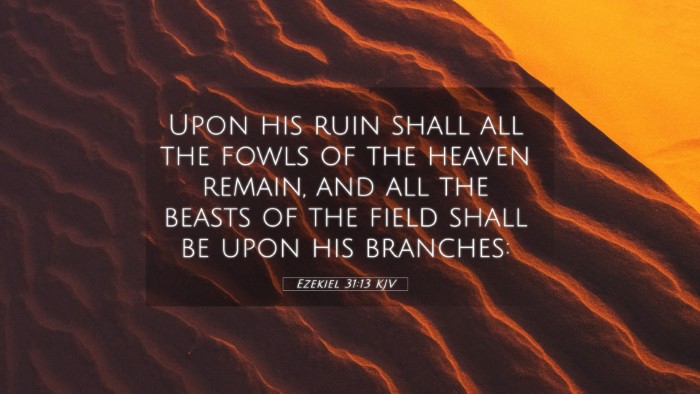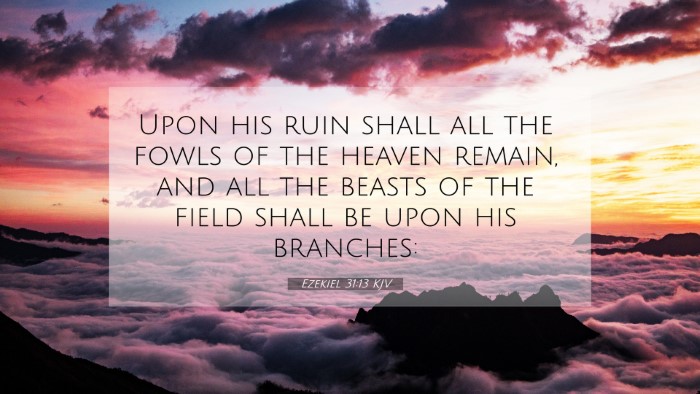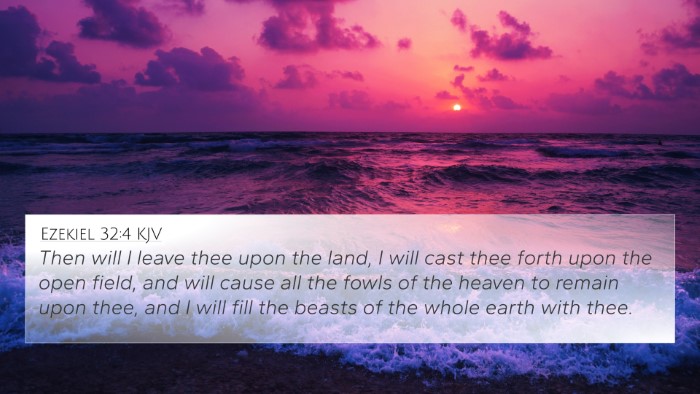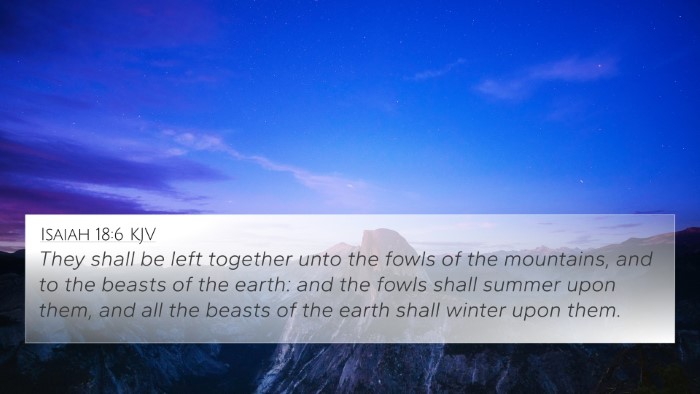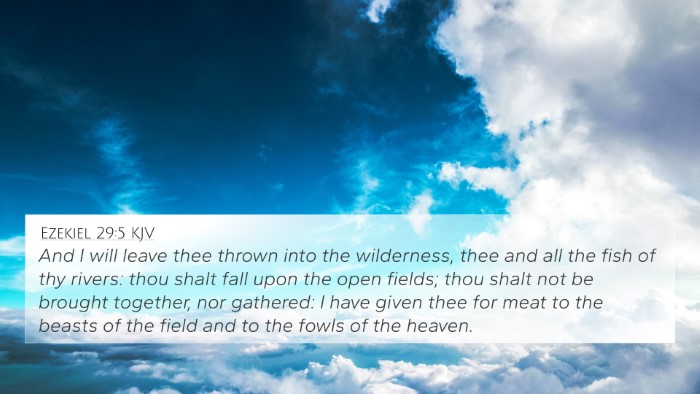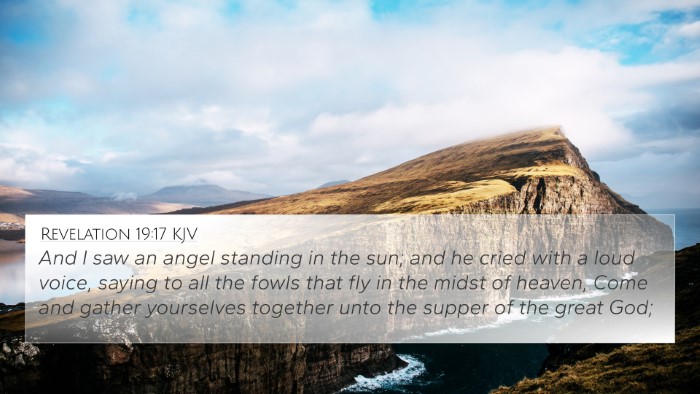Ezekiel 31:13: Understanding the Verse
Ezekiel 31:13 states, "On all its fallen trunks will be the birds of the heavens, and on its boughs will be all the beasts of the field." This verse serves as part of a longer metaphor comparing the grandeur of Assyria and its eventual downfall to a once magnificent tree that is now laid low.
Summary of Insights from Public Domain Commentaries
This verse encapsulates the themes of pride, fall, and the consequences of one’s actions as interpreted through the lenses of ancient biblical commentators like Matthew Henry, Albert Barnes, and Adam Clarke. Below is a synthesis of their insights:
-
Matthew Henry interprets this passage as a vivid picture of devastation. The fallen tree symbolizes the fate of Assyria, which once soared high and provided shelter (metaphorically) to nations, now serves only as a place for scavengers.
-
Albert Barnes notes that the imagery of birds and beasts illustrates the complete desolation that follows destruction. This serves as a warning against pride and arrogance, showing how quickly great powers can fall.
-
Adam Clarke emphasizes the idea of abandonment following the fall of a great empire. The nurturing aspect that the tree represented is now replaced by a populace that feeds off its remains, reflecting how empires are consumed by their own neglect.
Thematic Connections and Cross-References
The verse finds connections within the broader context of Scripture. Here are some relevant Bible verse cross-references that illuminate the meaning of Ezekiel 31:13:
- Ezekiel 28:17 - God’s condemnation of the pride of a powerful figure, paralleling Assyria's downfall.
- Isaiah 14:11 - A description of the fall of the mighty, similar to the fall symbolized in Ezekiel.
- Daniel 4:30-32 - The story of King Nebuchadnezzar’s pride is a parallel cautionary tale about the consequences of arrogance.
- Psalms 37:35-36 - Reflects on the transient nature of the wicked and how they ultimately face decline.
- Jeremiah 22:10 - The mourning over the fallen, representing the grief over loss of power and influence.
- Revelation 18:2 - The depiction of Babylon's fall mirrors the imagery in Ezekiel, showcasing the end of a great empire.
- Hosea 10:8 - The lamentation over the high places brings a thematic link to desolation following pride.
Inter-Biblical Dialogue
Through the lenses of these cross-references, we see a rich dialogue within scripture regarding the rise and fall of nations and powers. This inter-biblical dialogue helps to flesh out a comprehensive Bible reference resource for understanding the ramifications of pride as demonstrated in Ezekiel 31:13.
Application in Bible Study
For those engaging in cross-reference Bible study, utilizing a Bible concordance or a Bible cross-reference guide can enhance one’s understanding of scripture connections. Additionally, the use of thematic studies, such as identifying how the themes of pride and downfall resonate throughout both the Old and New Testaments, can deepen the reader's comprehension of Biblical narratives.
The Importance of Linking Bible Scriptures
The connections between Bible verses serve not only for scholarly pursuits but also for practical applications in daily life. Understanding the consequences of pride through the fallen tree metaphor in Ezekiel teaches about humility and the importance of not placing one's trust in worldly power.
Conclusion
Ezekiel 31:13 stands as a powerful reminder of the fleeting nature of glory and the inevitable judgment that follows pride. By examining this verse and cross-referencing related scriptures, one can gain a holistic understanding of its place in the Biblical narrative and its implications for contemporary faith and life.
